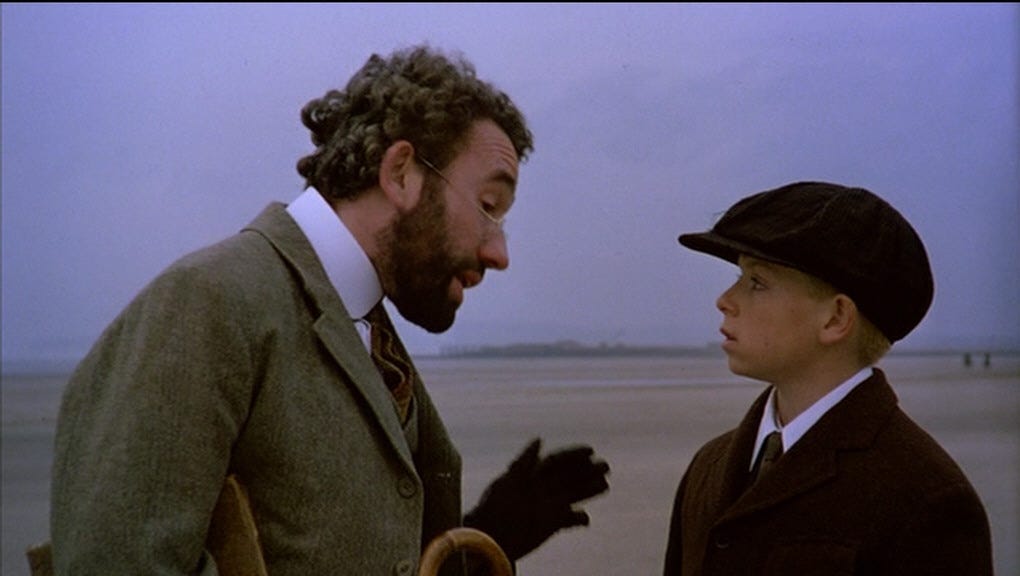On becoming your parents
A few years ago, my friend L noticed two seashell-shaped bookends on a shelf in my bedroom. With the smirk she acquires at any chance to tease, she levied that most most brutal of accusations: “These look like something your mom would own.” As exes and best friends, L has been in my life for a decade, which means she met my mom back when the two of us were on good terms, even staying at her home for a holiday or three. L was right about the bookends, and I hated it.
It’s a cliche that women fear becoming their mother, and I once fit into it neatly as a slice of bread in the toaster. But if I was doomed to that fate, I felt, back then, that it was only fair that the parent in question should be the one who could grow a halfway-decent mustache.
Once more, I’ve found myself shaking hands with the monkey’s paw. Like other people who use testosterone but aren’t male, the possibility of being seen as such used to circle like a vulture. For years, I told myself, my therapists, my friends that the world didn’t need another white man, which was a cowardly obscuring of the truth: that neither maleness nor “femaleness” can alter the fact of my whiteness. It took time to learn that medical transition is not unmediated by other aspects of my identity, and that the red herring of “becoming a white man” is an ultimately transphobic one. The possibility of trans men is to be treasured, not feared.
I got over all that. As I read more as fag and less as butch, I have undergone the discomfiting comfort of acquiring some new kinds of (albeit conditional) structural power, as well as of novel vulnerabilities that can’t be meaningfully described to those who don’t experience them. Those old fears—of “becoming” a man, of “losing” a womanhood that cis women never liked granting me, anyway—relied on an understanding of identity and legibility to which I no longer have the luxury of subscribing.
As I’ve adjusted to these old ambiguities, new ones arrive to test my limits. It is, perhaps, unsurprising that I would graduate from the fear of becoming my mother to the fear of becoming my father, but now that I have, it manifests in funny ways. I have not woken up, some transgender morning, to find myself a misogynist, like an incel Gregor Samsa, or pressure-cooked by heteromasculinity into total emotional unavailability (though I do feel its rib-cracking weight). Rather, I am able to empathize with my dad in ways I could never have before; now that my body more closely resembles his than my mother’s (kinda? sorta?), the world has folded back on me accordingly.
My dad is a redhead, which you can see in the siblings I share both parents with. My older sister grows an auburn mane, straight yet unruly thick; my younger sister’s curls, darkening like mine over the years, are sandy, with chestnut highlights. An ex-towhead, as an adult my hair has always been mousy, as Lucille Ball might have put it. But as my second puberty finally draws to a close, I have been finding tawny bits inside my disposable razor cartridges, only a shade or two darker than my dad’s old handlebar.
When I magically shedded most of the insecurities I inherited from my mom—a provincial, white, middle-class American woman addled by fad diets and Facebook—I never expected them to be replaced by my dad’s private moments of puniness (or what I suspect them to be, anyway). Occasionally, I find myself transposing him onto my life. I don’t mean to, it just happens. Here he is, sitting at my desk in the Brooklyn apartment where I live alone, Slacking with people who own MBAs and second homes, going to therapy (An activity which turns you into a faggot, he used to maintain. Guess he was right.), attending parties hosted by semi-famous transsexuals or fancy magazines he would only scoff at, if he’d ever even heard of them before. I haven’t seen him in years, and I hate him with my life, but when he is here, in my place, I worry about him. Does he feel lonely? Afraid? Inadequate?
I still have those bookends, which I know he would dislike.
David tweets at @k8bushofficial. Preorder their second novel, X (Catapult, 2022), here.
Subscribe to support GOOD ADVICE/BAD GAY, an advice series from an anonymous gay therapist who’s not afraid to hurt your feelings with the truth. (Sample an unlocked post for a taste of what you’re missing.) 100% of funds go to support a rotating selection of mutual aid and reparations projects.
Want advice? Email badgayadvice@gmail.com for a free 3-month subscription.


